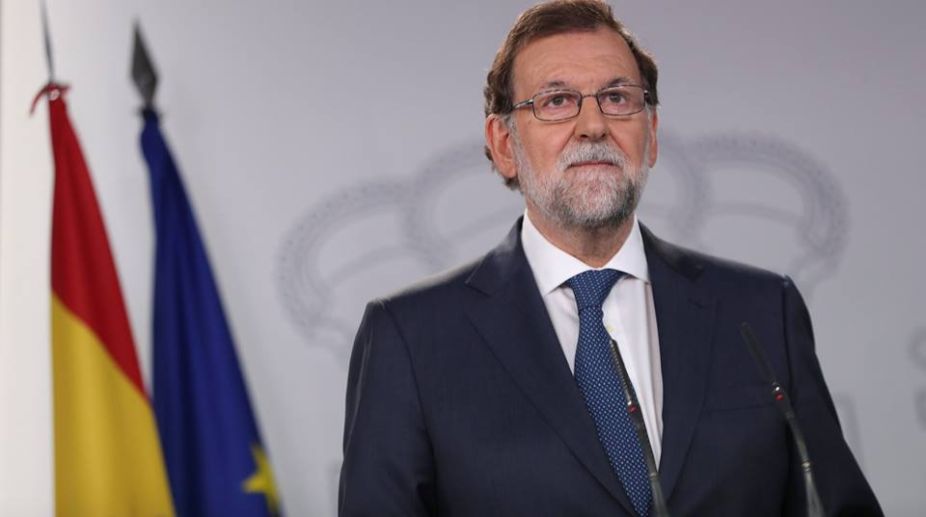India’s top 500 pvt cos value more than total GDP: Report
These companies value higher than the GDP of India and the combined GDPs of UAE, Indonesia, and Spain.

Spanish PM Mariano Rajoy (Photo: Facebook)
The biggest political crisis that Spain has witnessed in the past 40 years was not exactly defused on Thursday when the government in Madrid decided to suspend Catalonia’s autonomy and impose direct rule.
More accurately, the constitutional crisis can be said to have deepened. On the face of it, Madrid has adopted a stern response to the Catalan President’s refusal to abandon the movement for independence. Indeed, the response of the government of Prime Minister Mariano Rajoy is as robust as it is unprecedented. It is obviously intended to blunt the edge of Carles Puigdemont’s threat to announce a unilateral declaration of independence if the Spanish government did not agree to talks on the issue.
Advertisement
Far from agreeing to negotiate, the government has entrenched its authority further still, almost reducing the independence referendum to irrelevance. Thus has the freedom struggle been suspended, if not scuttled, in a sensitive part of Europe.
Advertisement
It is obvious that the government’s decision to impose direct rule has followed Puigdemont’s threat on unilateral declaration. Article 155 of the Spanish Constitution will be invoked to begin the process of suspending the region’s self-rule.
It is open to question though whether Madrid’s retaliatory strike will protect the general interest of Spaniards, including the citizens of Catalonia, and restore constitutional order in the restive autonomous community. Article 155, which was incorporated in Spain’s 1978 Constitution, has never been used in the four decades since democracy was restored at the end of General Franco’s dictatorship.
Not that democracy will be strengthened with the imposition of direct rule over Catalonia; in effect the message of the referendum has been stifled and this cannot but weaken the democratic engagement… for which the Spaniards had once fought against the fascist dictatorship of Franco. Undeniably, the secessionists’ demand for talks is justified… at any rate as an essay towards defusing the crisis. The factors at the root of the regional jingoism cannot readily be discounted, not least the iniquitous tax system.
Yet by refusing to give negotiations a try, the government appears to have given a handle to the Catalans to debunk the concept of “direct rule” as an “invasion” of the region’s self-government. The outlook is grim as statements and counterattacks by the Rajoy government and the Catalans have served to intensify the uncertainty over the past 24 hours.
It has raised fears of social unrest, has compelled the Eurozone’s fourth largest economy to cut its growth forecasts, and has destabilised the Euro in a country that has been grappling with a stuttering economy for the past few years.
“If the government continues to impede dialogue and continues with repression, the Catalan parliament could proceed to vote on a formal declaration of independence,” is the text of Puigdemont’s letter to Rajoy. The subtext being that the Catalan President is agreeable to negotiations…
Advertisement